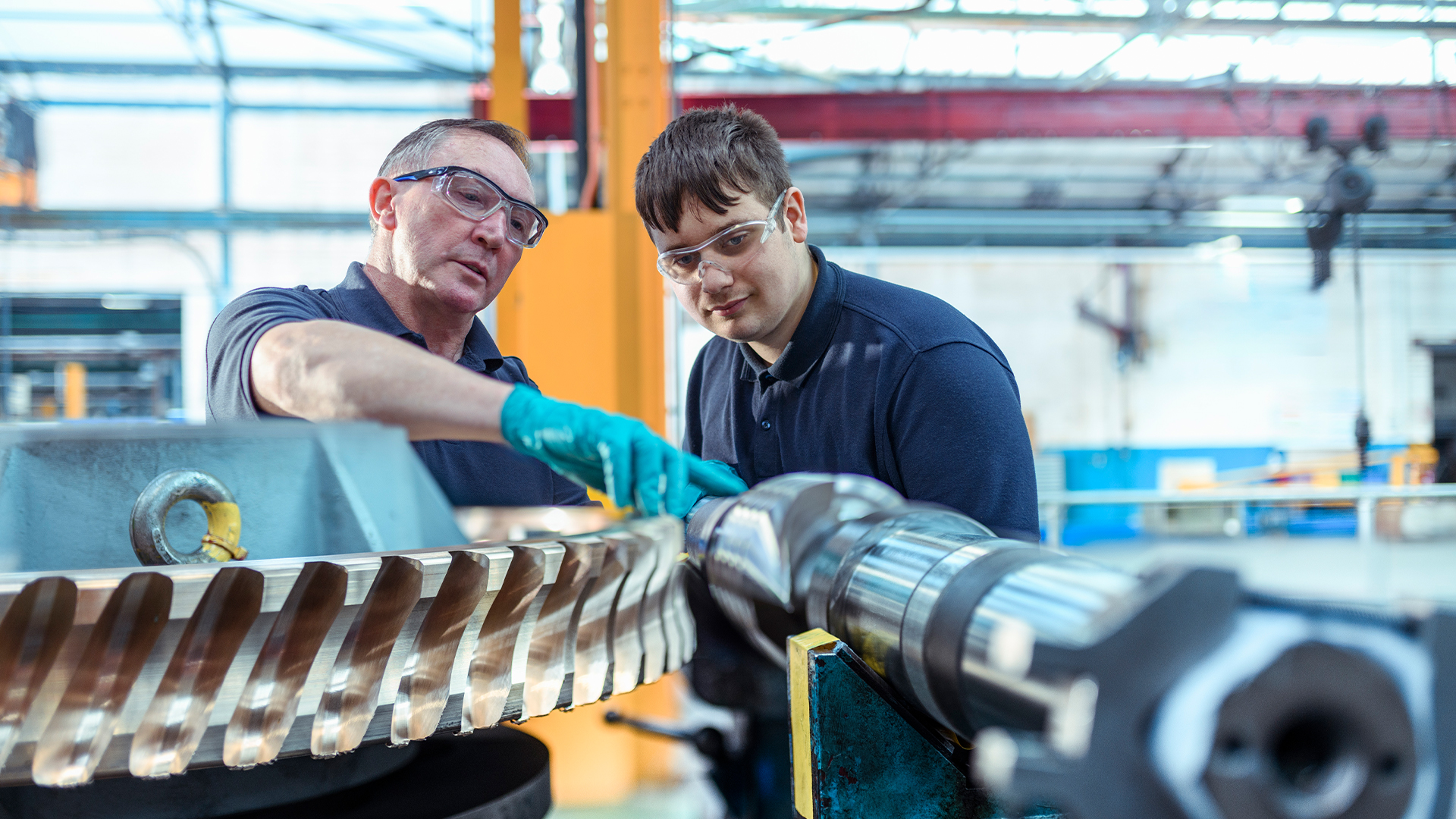Engineering firms see little productivity benefit from use of AI
While there are benefits to AI, engineering firms aren’t capitalizing on the technology


Sign up today and you will receive a free copy of our Future Focus 2025 report - the leading guidance on AI, cybersecurity and other IT challenges as per 700+ senior executives
You are now subscribed
Your newsletter sign-up was successful
Despite very high hopes, engineering firms are overwhelmingly failing to get much in the way of productivity gains from AI.
While 93% of engineering leaders expect AI to deliver productivity gains - and 30% anticipating very high gains - only 3% report achieving that level of impact.
However, according to the State of Engineering AI 2025 report from SimScale, organizations using cloud native simulation tools are twice as confident about achieving their AI goals within the next 12 months.
Notably, these firms are three times as likely to have mature AI programs, and six times as likely to have clean, centralized data.
"Engineering leaders see the potential of AI — but knowing isn’t doing,” said David Heiny, CEO at SimScale. “The challenge is no longer about believing in AI’s promise, but about overcoming the very real systemic blockers that stop teams from scaling it successfully.”
The biggest barriers, as with most industries, are siloed data and legacy tools, the study found. More than half (55%) cite siloed data and 42% legacy desktop computer aided engineering (CAE) tools as major blockers to their AI ambitions.
Meanwhile, 42% of CTOs complained about resistance to AI adoption within technical teams. However, engineering team leaders themselves reported resistance just 29% of the time.
Sign up today and you will receive a free copy of our Future Focus 2025 report - the leading guidance on AI, cybersecurity and other IT challenges as per 700+ senior executives
This, SimScale noted, suggests that technical teams are more open, ready and motivated to adopt AI than leadership assumes.
AI as a growth driver in engineering
In terms of hopes, AI is seen as a growth driver, as well as a tool for more efficiency. Engineering leaders expect AI to fuel greater design innovation (54%), engineering productivity (51%), and faster time to market (47%). Reduced costs rank lowest on the list of expected benefits.
As for the lucky 3% who are seeing significant productivity gains, SimScale said it's all about project execution, with four key traits in common.
First and foremost, they have eliminated siloed, desktop-era toolchains in favor of cloud-native platforms, and their engineering data is centralized, accessible and structured, using open formats and APIs.
These companies also have integrated agentic workflows, building and integrating AI agents directly into live workflows — not as bolt-on tools, but as embedded decision-makers at the setup, evaluation, and optimization stages.
Similarly, successful deployers test in low-risk settings, but move quickly to real-world, in-the-loop deployment. This, the study noted, delivers value in weeks, not years.
“Forward thinking teams are proving that engineering AI can deliver significant changes in innovation and performance," said Jon Wilde, VP of Product at SimScale.
"The execution gap for others is not technical feasibility — it’s architectural and organizational readiness. Now it’s about helping those companies make that leap with confidence —before the gap becomes too wide to close."
Engineering firms aren't the only ones to find AI productivity gains turning out to be less than expected.
Research from workflow management platform Wrike earlier this year, for example, found that botched adoption strategies mean many UK enterprises are still facing critical inefficiencies and rising workloads.
Make sure to follow ITPro on Google News to keep tabs on all our latest news, analysis, and reviews.
MORE FROM ITPRO
Emma Woollacott is a freelance journalist writing for publications including the BBC, Private Eye, Forbes, Raconteur and specialist technology titles.
-
 ITPro Best of Show NAB 2026 awards now open for entries
ITPro Best of Show NAB 2026 awards now open for entriesThe awards are a fantastic opportunity for companies to stand out at one of the industry's most attended shows
-
 Mistral CEO Arthur Mensch thinks 50% of SaaS solutions could be supplanted by AI
Mistral CEO Arthur Mensch thinks 50% of SaaS solutions could be supplanted by AINews Mensch’s comments come amidst rising concerns about the impact of AI on traditional software
-
 ‘AI is no longer about experiments. It is about results’: Boards are pushing for faster returns on AI investments, and tech leaders can't keep pace
‘AI is no longer about experiments. It is about results’: Boards are pushing for faster returns on AI investments, and tech leaders can't keep paceNews AI projects are now being held to the same standards as any other business investment
-
 AI isn’t making work easier, it’s intensifying it – researchers say teams are now facing 'unsustainable' workloads, cognitive strain, and higher levels of burnout
AI isn’t making work easier, it’s intensifying it – researchers say teams are now facing 'unsustainable' workloads, cognitive strain, and higher levels of burnoutNews While workers report productivity gains with AI, that means they’re faced with bigger workloads
-
 Business leaders are using AI as a “license to reduce headcount” – new Morgan Stanley research lays bare the impact on UK workers
Business leaders are using AI as a “license to reduce headcount” – new Morgan Stanley research lays bare the impact on UK workersNews Analysis of five sectors highlights an "early warning sign" of AI’s impact on jobs
-
 Lloyds Banking Group wants to train every employee in AI by the end of this year – here's how it plans to do it
Lloyds Banking Group wants to train every employee in AI by the end of this year – here's how it plans to do itNews The new AI Academy from Lloyds Banking Group looks to upskill staff, drive AI use, and improve customer service
-
 CEOs are fed up with poor returns on investment from AI: Enterprises are struggling to even 'move beyond pilots' and 56% say the technology has delivered zero cost or revenue improvements
CEOs are fed up with poor returns on investment from AI: Enterprises are struggling to even 'move beyond pilots' and 56% say the technology has delivered zero cost or revenue improvementsNews Most CEOs say they're struggling to turn AI investment into tangible returns and failing to move beyond exploratory projects
-
 Companies continue to splash out on AI, despite disillusionment with the technology
Companies continue to splash out on AI, despite disillusionment with the technologyNews Worldwide spending on AI will hit $2.5 trillion in 2026, according to Gartner, despite IT leaders wallowing in the "Trough of Disillusionment" – and spending will surge again next year.
-
 A new study claims AI will destroy 10.4 million roles in the US by 2030, more than the number of jobs lost in the Great Recession – but analysts still insist there won’t be a ‘jobs apocalypse’
A new study claims AI will destroy 10.4 million roles in the US by 2030, more than the number of jobs lost in the Great Recession – but analysts still insist there won’t be a ‘jobs apocalypse’News A frantic push to automate roles with AI could come back to haunt many enterprises, according to Forrester
-
 Businesses aren't laying off staff because of AI, they're using it as an excuse to distract from 'weak demand or excessive hiring'
Businesses aren't laying off staff because of AI, they're using it as an excuse to distract from 'weak demand or excessive hiring'News It's sexier to say AI caused redundancies than it is to admit the economy is bad or overhiring has happened
